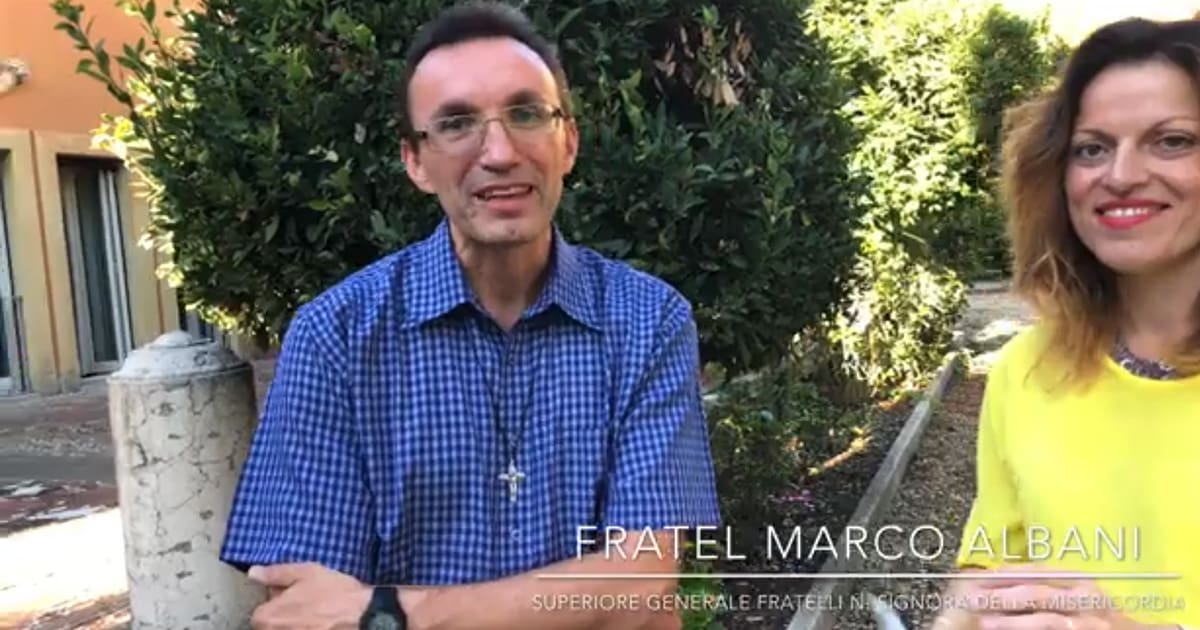Interview with Brother Marco Albani, General Superior of the Brothers of Our Lady of Mercy
In January 2020, Rome will host a meeting of the Superiors General and Presidents of the Vincentian Family. We continue this series of posts to deepen our knowledge of the many Vincentian Branches. Here we interview Brother Marco Albani, General Superior of the Brothers of Our Lady of Mercy.
How and when did your foundation take place?
We must take a trip back in time and space. Let us then return to Belgium at the beginning of the nineteenth century. A priest, Vittore Scheppers (1802-1877), a member of a noble family, was ordained a priest at the age of thirty. His first ministry involved him in the primary education of children. That ministry made him aware of the urgency to make education available to those children who were not being schooled. At the time, there was no obligation to attend school. He invited young workers to his house and began a night school and a Sunday school for these individuals. What inspired him to establish the Congregation of the Brothers of Our Lady of Mercy was his involvement in the world of prisons. Father Vittore was invited to participate in a ceremony at the prison in Vilvoord where he experienced the deplorable conditions of the prisoners. He stated: we have to do something here! That event provided Father with a new motivation to establish a Congregation. A decision was made on July 19, 1837 (the feast of Saint Vincent de Paul): Father Vittore had gone to pray at a Marian shrine in Belgium and at the conclusion of his prayer, aware of the inspiration of Saint Vincent, he said: this is the time to establish a congregation. The Congregation was formally established on January 25, 1839 and was first called, The Brothers of Charity of Saint Vincent de Paul. In order to give greater prominence to the Blessed Mother a change was made, thus, the Congregation of the Brothers of Our Lady of Mercy. The objectives of this new institute are threefold: [a] to help prisoners (living in prison with them), [b] to help the infirm, [c] to education young men and women.
How does your Congregation reflect the Vincentian charism?
We reflect that charism through mercy. We are the Brothers of Our Lady of Mercy … and mercy is very much related to Vincent de Paul, the saint of charity. Mercy means that people open their hearts to those individuals who are most vulnerable … and that is what we attempt to do. That is also what our Founder attempted to do and that is what Vincent de Paul did. If we place mercy at the center of our being, then, we become like Vincent de Paul and we reflect his charism. Our Founder gave us a very significant motto: Honor Deo, labor mihi, utilitas proximo (To God the honour, for me the labour, the profit for my fellow creatures). Thus, even in that respect our Congregation is very Vincentian: everything flows from the love of God toward the neighbor. Other ways in which we are united to the spirituality of Saint Vincent flow from the manner in which we embody mercy and charity. Vincent saw that humility was the foundation of everything as did our Founder who stated that humility ought to be foundation of the Congregation. Thus, we promote a practical and concrete charity, an apostolate that has a unique style: through prayer we are able to see the person of Jesus in the neighbor: in the infirm and in the students in the various schools and in the addicts … We are continually challenged to find the person of Jesus in all these individuals … and that is what St. Vincent did.
Your hopes and expectations for the Vincentian charism as we approach the meeting of the leaders of the Vincentian Family, scheduled for January 2020, in Rome.
That is a difficult question … I am not sure what to expect but I have two answers to that question. Our Congregation ought to rediscover the Vincentian spirit that existed at the time of our establishment. I believe that this gathering in January can provide us with a wonderful opportunity to do that. As superior I will have the privilege of listening to, learning and understanding many things about the Vincentian spirit … and I will be concerned about communicating all of this to the Brothers. Therefore, my first expectation is to learn much. My second expectation is to be able to work together with others in groups. I am convinced that each reality which will become visible and present during the time of our meeting, has in fact been lived for quite some time. But to be able to reflect together, to plan together with the hope and the expectation of being able to act together … well, that is something wonderful and that provides us with a stronger and more powerful message than any one Institute could communicate.
Translated:
Charles T. Plock, CM
Eastern Province, USA







0 Comments